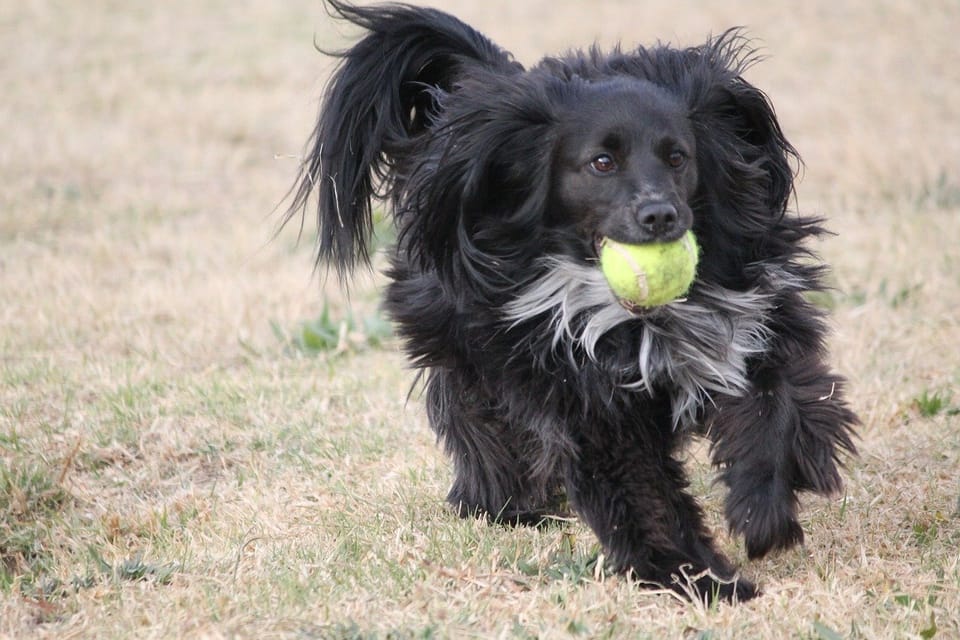Should a couple expecting a baby adopt a 'mouthy' dog?

Q: I have an energetic foster dog who is lots of fun — even with a few bad habits. One of those habits is that he will jump up and nip at people — in play — if they run. He is what most would call “mouthy.” (He will also “mouth” my hands when he wants to coerce me to play with him — I know enough not to reward him for this.) On the bike path, he also crouches (like a stalking lion) and pounces at oncoming bikers. He has great ball/frisbee drive — he will retrieve until he literally collapses from exhaustion. I have a couple who is interested in adopting him but who are expecting a baby very soon (reasoning that the baby and the dog can grow up together). Something about having this dog and a baby together makes me nervous, but I’m not sure I can exactly say why…. Do you think that a dog with this low bite inhibition is a bad placement with children, period, or could this be worked with?
A: People expecting to have a baby “very soon” shouldn’t be adopting a new dog, period. The dog, whoever he/she is, is going to take a ton of time and commitment to train and integrate into the household, time and commitment they’re soon not about to have because they’ll need to focus on the baby. A better idea is to get the baby under their belts, so to speak, and then take the time to find a dog who has an excellent history and reputation with young children (preferably with the help of a professional trainer).
A quick word about “bite inhibition” — if your foster dog has a history of putting his mouth on people, but not breaking or bruising skin, dog trainers would call that good (or high) bite inhibition. A dog who inhibits his or her bites is at least known not to injure people or other dogs, which is a good thing. Poor bite inhibition would mean the dog is regularly breaking skin and delivering bites that require medical attention.
As for whether the behavior can be worked with, certainly! It will take effort on the new adopter’s part to understand how and why the dog is behaving the way he is, and to channel that energy into an appropriate outlet (you mention ball and disc, both good options, as well as any number of dog sports).
That said, your instincts are right on, and if you don’t think this couple is in the mood for advice, a simple “This dog isn’t suitable for a household with children younger than 5” is sound advice.